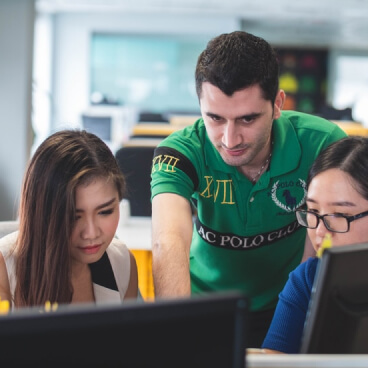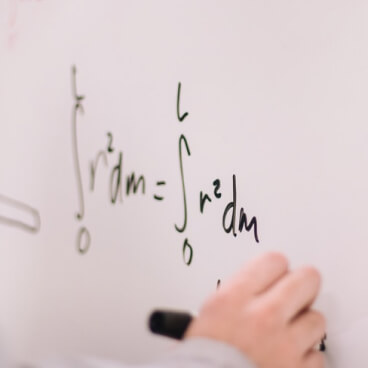EPC Resource & Tips
Definition of an essay
Within the context of this competition, an essay is a four-part paper where the writer takes a stance on the essay question and develops it into a coherent, well organized, and well-thought out composition.
Introduction
This part of the paper lays out the “roadmap” for your essay. It explains the question from your understanding and how you plan to handle it. It helps the reader know what to expect and look for in your essay. Usually, the introduction contains the thesis statement. This single sentence is the crux of your essay. It explains your stance on the question and exactly what you will cover in the body of the essay. An introductory paragraph can start out with general information and end with a specific thesis statement.
Body
This is the “meat” of your essay. In this part, you will thoroughly explain your position. You should use examples, quotes, and any information you have gathered from your research to support your argument.
This is where you show your reader you know and understand the topic. Typically, this part will consist of one to three paragraphs, but can have as many paragraphs as the writer wishes.
Conclusion
This is the part of the essay where you sum up your position and re-iterate the main points of the essay.
There should not really be any new information here that was not covered in the introduction or the body of the paper. In fact, the conclusion could be considered a “mirror-image” of the introduction (i.e., start out specific and end with general idea).
Works Cited Page
This is a list of sources that you have referred to in your essay or have used as research or background information. It is placed at the end of the paper on a separate page. Although most of the writing will be your own, a lot of it will be based on information you found in books, lectures, websites, etc. Any information you have used in your essay must be clearly cited within the essay and mentioned on your references page.
All citations should follow the rules found in a handbook like the APA Format (http://owl.english.purdue.edu/owl/resource/560/01/ ), although you can use any handbook with which you are familiar. It is very important to cite all sources that you used; otherwise, you could be in danger of plagiarism.
Standard Quranic and Hadith citation format – for Quran citation use (Sura #: Ayah #), and for Hadith, use (Source, Hadith #) or APA format for other source
Other important information
- Make sure your essay responds directly to the assigned topic
- Your essay should be well organized (both in content and structure) and well thought out.
- There should be a clear flow of ideas throughout the essay (i.e., from one sentence to the next and one paragraph to the next.)
- Your ideas should be supported with research that should be referenced correctly.
- Try to be creative and novel in your approach to the topic.
- Essays should be typed and double-spaced.
- Your name or your school’s name should not be anywhere in or on the essay.
- Last but never least, pay attention to spelling, grammar, and punctuation.
- Written statements from the parent/guardian and the author confirming that the work was primarily done by the author (Book publication requires that the work is original and their own. SEE Essay Guidelines for )
Useful websites
- ABC’s of the Writing Process: A Universal Process for Any Writing Task. http://www.angelfire.com/wi/writingprocess/index.html
- Guide to Grammar and Writing. http://grammar.ccc.commnet.edu/grammar
- Writing, Reading and Note Making: The ABC Guides. http://www.mdx.ac.uk/WWW/STUDY/Essays.htm
- Guide to MLA Style http://owl.english.purdue.edu/owl/resource/557/01/
- Avoiding Plagiarism http://owl.english.purdue.edu/owl/resource/589/01/
- https://www.youtube.com/watch?v=Xu8ttj7U4aU
- https://prezi.com/rhqpeurmvqg9/essay-writing-101-epc-mafiq-workshop/?utm_campaign=share&utm_medium=copy
EPC Speech Tips
Basic Techniques of a Notable Speech
- Trust in Allah and state the basmala (saying “Bismillah”)
- Don’t READ your speech • Deliver a performance, rather than saying words and sentences …
- Use the power of eye contact
- Don’t hide behind the lectern
- Posture matters
- Tell compelling stories
- Vary your tone
- Keep it short, simple, and crispy
- Speak about what you know and care about
Delivery means….
- Stand up straight
- Don’t read your essay
- Use body language that makes you appear comfortable
- Slow down
- Pay attention to transitions 6. Vary and sustain eye contact with the entire audience.
- Vary your pitch, rate, and volume to appropriately convey meaning throughout.
- Practice to deliver a smoothly flowing language, devoid of filler words or verbal tics.
Idea means……
- Tell compelling stories
- Your ideas are simple to understand and supported by facts and reasoning
- Organize and explain your ideas together clearly and in an orderly manner
- You provide an interesting or unique perspective, interpretation, and/or examples to support your thesis.

Rules
*Please be respectful to everyone, including fellow competitors. *If you need to enter or exit a room, please wait to do so in between presentations, as to be respectful to the presenter. *Judges are not permitted to open or close doors, so that they may focus on the competitor’s presentation without distraction. *Participants that are waiting for their turn must remain silent. *Do not distract judges, the presenter or audience. Parents are not permitted to raise questions about the judging during the event. Any dispute must be submitted to essays@mafiq.org in writing Jazakum Allahu Khairun for your cooperation!

Fine Arts
Giving wings to the artists who’d like to take it up as a career or just a hobby. Our students are trained by professionals who help them develop, learn and polish their skills while at school.

Humanities
The study of ancient and modern languages, philosophy, history, and more. We take pride in offering top humanity courses from a dedicated and trained staff.

Science
The study encourages scientific reasoning, discoveries and inventions. Great teachers and well-equipped laboratories help students explore, discover and experiment new things under the best supervision.

Mathematics
Understanding the game of numbers and logic to solve real world problems. Learn mathematics from scholars and university toppers who not make it interesting, but also fun to learn.
